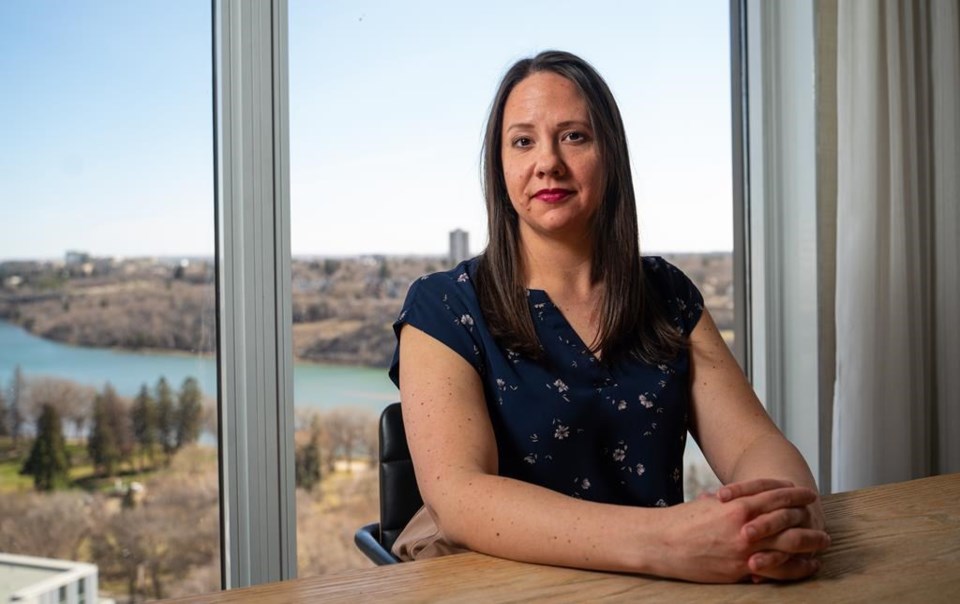REGINA — The head of Saskatchewan's teachers union says an overwhelming 'no' vote on the province’s latest contract offer shows members want more than paper promises.
Samantha Becotte said Friday Premier Scott Moe’s government must demonstrate concrete action on issues of classroom sizes and supports for students with additional learning needs.
She said the Saskatchewan Party government also needs to ensure teachers receive more pay to help schools recruit and retain educators.
Becotte’s comments come the day after 90 per cent of participating teachers voted to reject a proposed new collective bargaining agreement. More than 92 per cent of the 13,500 members cast their ballots.
The province did not want classroom supports funding in the contract but inserted a line in the agreement promising to follow through with $46 million in additional funding.
“I know the government and (school boards) have moved slightly with the inclusion of the one line, but teachers said that isn’t enough,” Becotte told reporters.
“We’ve already heard from school divisions about potential cuts. I’ve heard from some teachers that their division is losing 11 positions, and that means class sizes are going to grow and students’ needs aren’t going to be addressed.”
Education Minister Jeremy Cockrill said Friday he’s disappointed by the vote and thought the offer was fair.
“Government has moved on significant items and I would say we haven’t seen the same from the teachers bargaining committee,” he told reporters.
“Government is committed to making significant investments in our K-12 education sector, and I think everybody in the province wants to see a deal done.”
He said teachers salaries are at or above the western Canadian average.
Becotte said the starting and maximum wage is lower than that average.
The federation has asked to go back into negotiations starting next week. Cockrill has also said bargaining must resume.
Teachers have not ruled out taking future job action that could result in cancelled graduation ceremonies and extracurricular activities.
Becotte said disruptions can be avoided if the province responds to their demands.
“It would be very disappointing if we’re forced to take those actions,” she said.
Cockrill said 24 of 27 school divisions would be able to host graduation ceremonies even if teachers don’t participate.
“There’s still obviously a small number of divisions that are going to have to figure out how to do that. The Ministry of Education has asked for how we can help with that to ensure all students in Saskatchewan have an opportunity to walk across the stage,” he said.
He said extending the school year remains possible, as some schools have not hit the required amount of instructional time.
“Any decision on that would be in concert with school divisions,” Cockrill said.
The federation and the province were at an impasse for months before the vote.
Teachers have gone on rotating strikes and refused to volunteer for activities, including lunchroom supervision and extracurricular work.
In March, such job action caused a provincial basketball tournament known as Hoopla to be cancelled, though schools found a workaround for a one-day version of the event to take place.
This report by The Canadian Press was first published May 10, 2024.
Jeremy Simes, The Canadian Press



